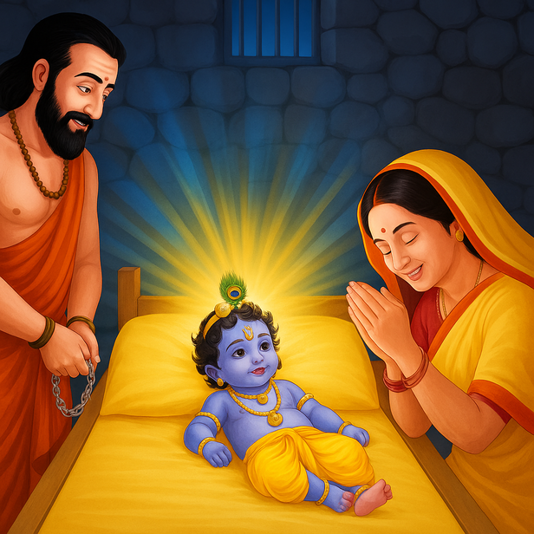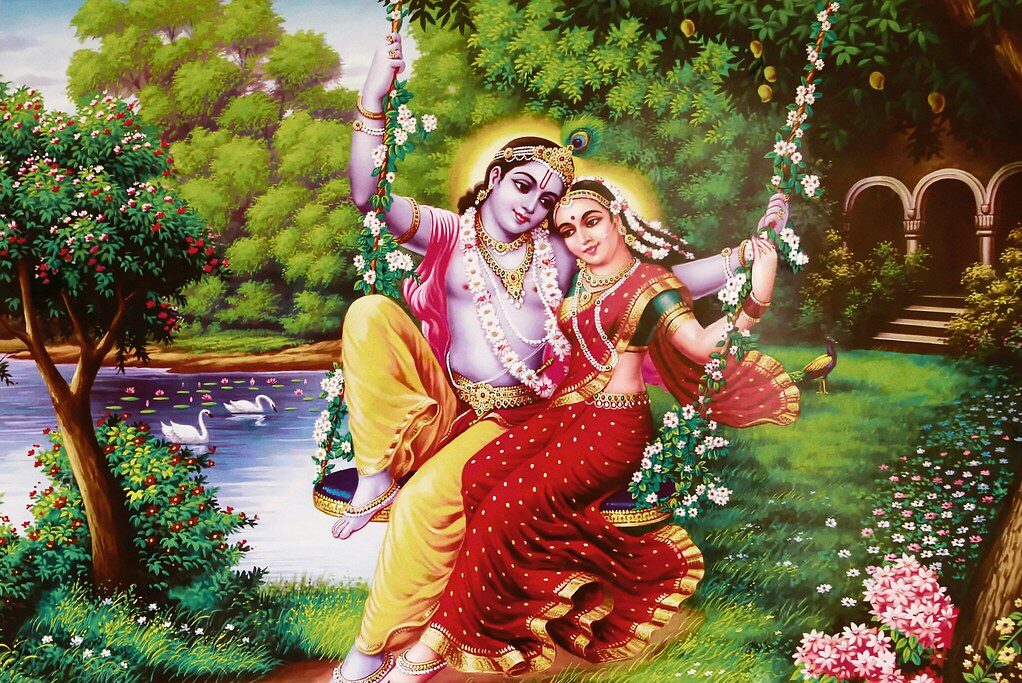In Sanatan Dharma, the divine administrators of the universe, the gods, are also subject to the laws of dharma. They are not free to act as they please. The Vedas and scriptures describe that cosmic order is maintained only because the supreme beings also follow the eternal principles laid down by God. Yet, on the night of Krishna’s birth, these very beings broke, and in some cases violated, the very rules they had sworn to uphold.
The Bhagavata Purana (10.1-10.3) vividly depicts the scene: Mathura was under the iron control of Kamsa, a king whose cruelty had silenced dharma. Krishna’s mother Devaki had already lost six of her newborn children to Kamsa’s sword. The balance of the world was tilting towards darkness, and the prayers of sages, saints, and even the gods themselves echoed in the heavens.
Normally, the gods cannot interfere directly in the affairs of mortals, beyond their appointed duties. The Rig Veda states: “Rta is supreme; the gods also move within it.” (Rig Veda 10.190) But when adharma goes beyond limits, the same dharma demands an exception. This is why the Supreme Protector Vishnu decided to incarnate.

Preserving truth outweighed strict cosmic law
The Harivamsa Purana tells us that before Krishna’s incarnation, the gods took birth on earth in disguise as associates, relatives and protectors of the divine child. The protection of Vasudeva and Devaki, the guarding of the crossing of the Yamuna and the guidance to Gokul, involved divine intervention beyond normal limits.
Indra, the king of the gods, who normally brings rain according to cosmic order, remained silent until Krishna was born and then the clouds parted, and a protective darkness fell on Vasudeva’s path. The cosmic serpent, Ananta Sesha, left his eternal place below the worlds to cover the infant with his hood, an act that was against his own duty to hold the earth.

The Bhagavata Purana relates that when Vasudeva was ferrying Krishna across the Yamuna, the water rose to touch his feet. Normally rivers flow their course, not daring to stop or change course, that is their svadharma. But Yamuna, herself a goddess, broke this rule, stopping her flow so that she could wash away the sins accumulated over her lifetimes by touching the feet of the Supreme Lord.
This was not mere devotion; it was belief. For in the form of Krishna it was He who created all rules, the law-maker Himself.
The Mahabharata (Shanti Parva, 109.10) states: “When the very foundation of Dharma is shaken, what is called Dharma may take another form.” For the gods, breaking their limits was not disobedience but the highest obedience. They were not serving their own will; they were serving the will of the Supreme Lord who is above all rules.
This is the paradox of Krishna’s birth: the arrival of the Supreme Being on earth demanded even the guardians of cosmic laws to go beyond the rules, because the purpose of rules is not rigidity, but the protection of truth and balance.
A Lesson for Us
Krishna’s birth is not just history or mythology; it is a mirror. It reminds us that rules, traditions and systems are in the service of truth, not the other way around. When life pushes us to a point where following the rules to the letter destroys one’s soul, we must remember the courage of the gods that night. Sometimes, to serve the eternal, you have to go beyond the momentary.
And perhaps that is why the Gita begins not with gentle philosophy, but with Krishna urging Arjuna to do karma, to do the right thing, even if it breaks the spontaneity. Because the laws of man and even the laws of the gods are written by him, but the law of love for God is above all.

